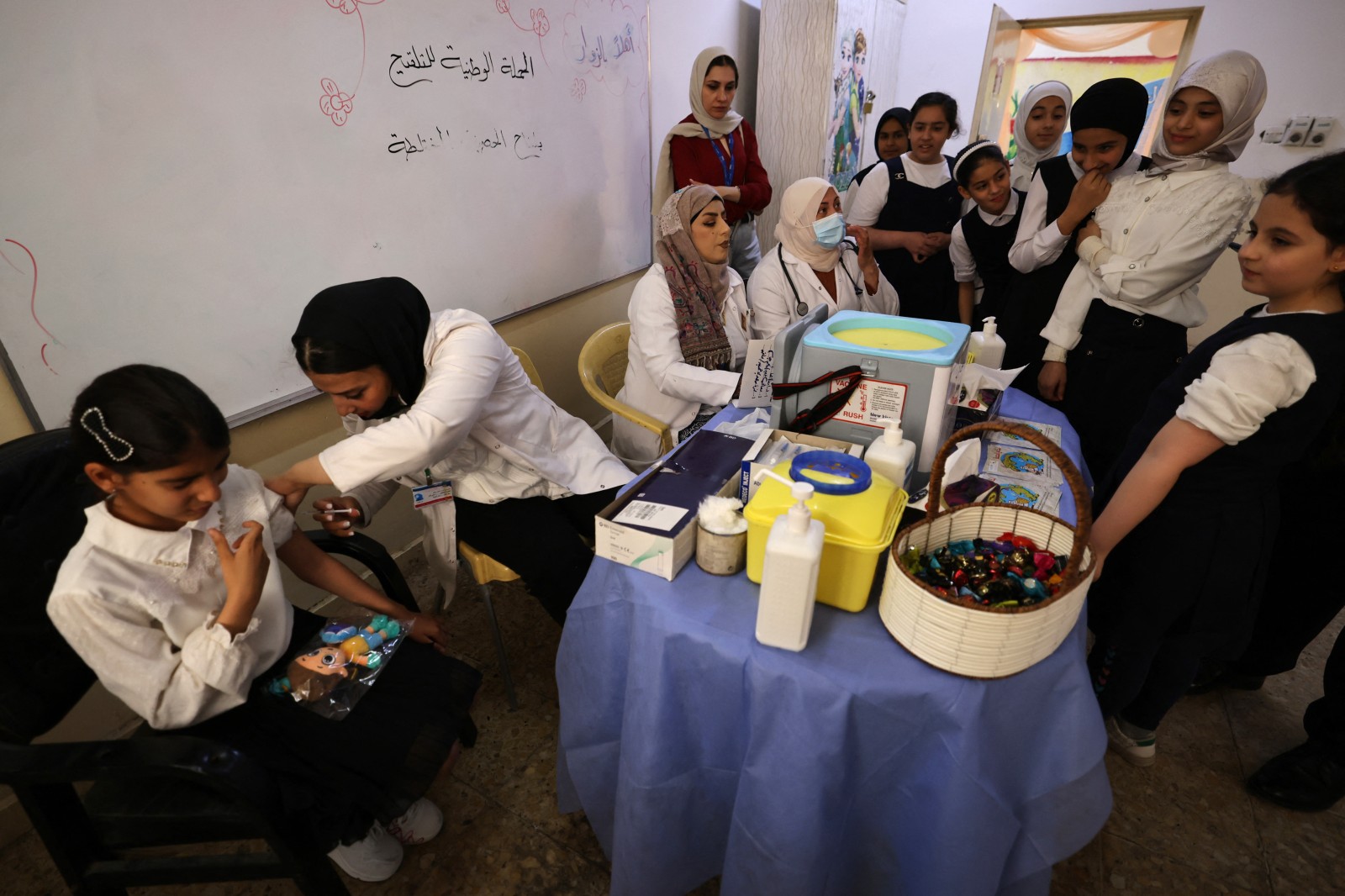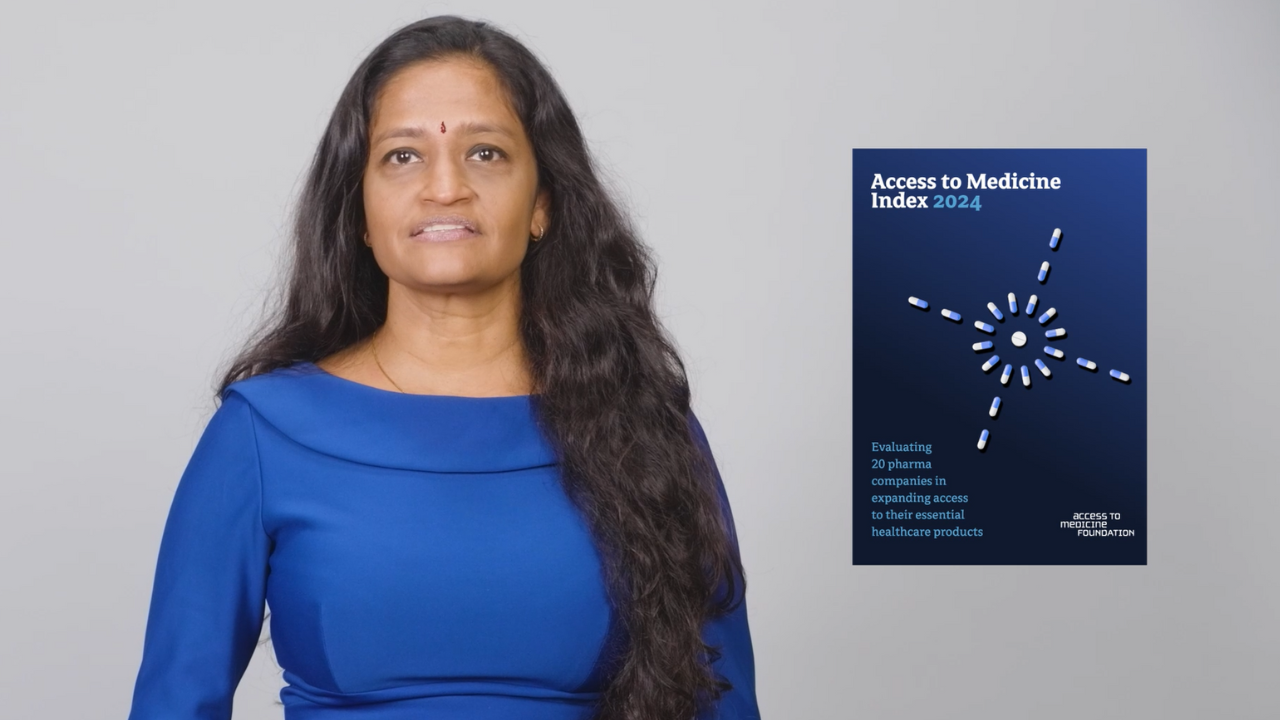Pharma companies still not maximising their potential to reach more patients in low- and middle-income countries
Direct links
Several pharmaceutical companies are prioritising low-income and least developed countries within their inclusive business models, with this trend rising. However, the implementation of these models is currently limited.
Momentum in licensing activity has stalled, with only two new non-exclusive voluntary licensing (NEVL) agreements identified in the 2024 Index, compared with six in 2022, signalling a missed opportunity to improve local availability of innovative medicines.
Only 43% of clinical trials take place in the 113 LMICs covered by the Index analysis, despite being home to 80% of the global population; since companies typically prioritise access planning in countries where they conduct trials, this leaves much of the world behind.
Novartis is not only new to the top three spots of the overall Index ranking, but has risen to number one, putting GSK – the long-time leader – in second place.

For more than 15 years, the Index has guided pharmaceutical companies to embrace their role in the advancement of global healthcare equity by using data-driven insights to provide companies with practical steps they can take to expand access to their products in low- and middle-income countries (LMICs). With access-to-medicine gaps widening in LMICs and new threats to global health emerging, it is crucial that pharmaceutical companies continue to evolve their access efforts to match the current landscape.
In the ninth iteration of the Index, the Foundation aimed to gain a clearer understanding of whether companies’ products are truly reaching the patients that need them the most. To investigate this, the report includes a more rigorous assessment of companies’ efforts to track and report on patient reach, revealing mixed approaches by companies in doing this.
The Index’s ranking analysis has placed Novartis at number one for the first time, followed closely by GSK, which held the top tanking for all the past iterations of the Index.
Despite modest headway being made by some companies in distinct areas, in examining the activities of the 20 companies across the three Technical Areas, the 2024 Index reveals an overall drop in momentum since the previous Index, underlining a disconnect between where critical access-to-medicine gaps exist and where companies are targeting their efforts.
2024 Access to Medicine Index
A deep dive with the Foundation's CEO, Jayasree K. Iyer
Urgent need to reach routinely overlooked populations
Encouragingly, more companies are adopting ‘inclusive business models’ (IBMs) that prioritise low-income and least-developed countries, whose populations have historically been overlooked in traditional access strategies for LMICs. Five companies – Bristol Myers Squibb, Novartis, Novo Nordisk, Pfizer and Sanofi – have launched models that collectively facilitate access to their products across 102 LMICs covered by the Index, including all 48 low-income countries.
However, the 2024 Index finds that the outcomes of these models are somewhat mixed, and transparent reporting on how many patients are truly being reached is lacking. Clearer information and data on which products are being delivered to patients – and where – will be crucial for developing more effective, scalable solutions to overcome persistent access gaps in underserved regions in the long term.
Stronger focus on research and development needed for sustained access
The 2024 Index highlights that more attention must be paid to research and development (R&D) – especially the worryingly low representation of resource-poor populations in clinical trials. Only 43% of trials take place across 113 LMICs covered by the Index analysis and the disparity is even more pronounced in low-income countries, where just 3.5% of trials occur.
Examples include Gilead's clinical trials in Uganda for lenacapavir, a long-acting injectable for HIV prevention, and trials by Merck KGaA (Merck) and Novartis in low-income countries for new antimalarials as part of the PAMAfrica consortium .
Lack of improvement in this area poses a risk of excluding genetically diverse populations in research, and separately, can result in insufficient access to products in LMICs, as pharmaceutical companies typically prioritise market access in countries where clinical trials are conducted.
Industry needs to recommit to voluntary licensing and technology transfers
Voluntary licensing agreements, particularly when supported by technology transfers to local manufacturers, are a powerful way in which pharmaceutical companies can improve long-term and sustainable access to their essential healthcare products, especially in regions where they have limited or no operations. However, there has been a noticeable slowdown in licensing activities with only two new non-exclusive voluntary licensing (NEVL) agreements were identified during the period of analysis for the 2024 Index (with a third following), compared with six in the 2022 Index.
Meanwhile, companies pursuing technology transfers are concentrating their initiatives in upper middle-income markets, with efforts lagging in sub-Saharan Africa (except for South Africa). Only six companies – Boehringer Ingelheim, Gilead, Merck, Novo Nordisk, Pfizer and Sanofi – report having established technology transfer initiatives in this region.
Novartis newly takes the top spot in latest ranking, followed closely by GSK
Novartis (1st) and GSK (2nd) rank within the top three performers across all three Technical Areas analysed in the 2024 Index: Governance of Access, Research & Development (R&D) and Product Delivery. The two leaders are followed by four high-performing companies that rank above average in all Technical Areas, leaving little separation between them in terms of overall performance: Sanofi (3rd), Pfizer (4th), with AstraZeneca and Johnson & Johnson (tied in 5th).
Notably, with the increased emphasis on assessing the outcomes of companies’ policies and practices in the 2024 Index, there has been a global decrease in performance across the 20 companies. This indicates that, although leading companies are making efforts to bridge the gap in equitable access, there is still a considerable way to go.
What is in the Index?
Key Findings: Three essential takeaways from the 2024 Index.
Ranking and Industry trends: How companies score and compare, and trends that can be identified across the industry.
Best Practices: Specific examples of what companies are doing right, and precedents they set for others to follow.
Technical Areas analyses: An in-depth look at the data on companies' actions in Governance of Access, R&D and Product Delivery.
Company Report Cards: Detailed overview of each of the 20 companies’ performances, and opportunities for improvement.
What’s next?
To accelerate progress in the push for global healthcare equity, companies must ensure their strategies for expanding access cover more products and include a wider range of countries – specifically lower-income countries, where populations remain consistently overlooked. Using the recommendations set out in the 2024 Access to Medicine Index, as well as the tailored ‘Opportunities’ identified for each individual company in their respective Report Cards, companies can now take decisive action to accelerate their efforts and work towards closing persistent access gaps.



